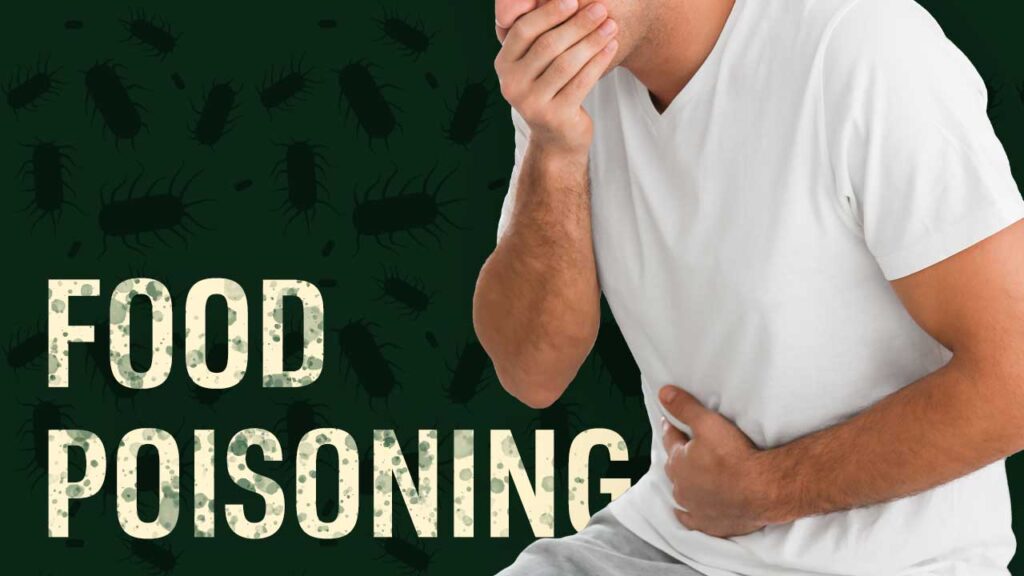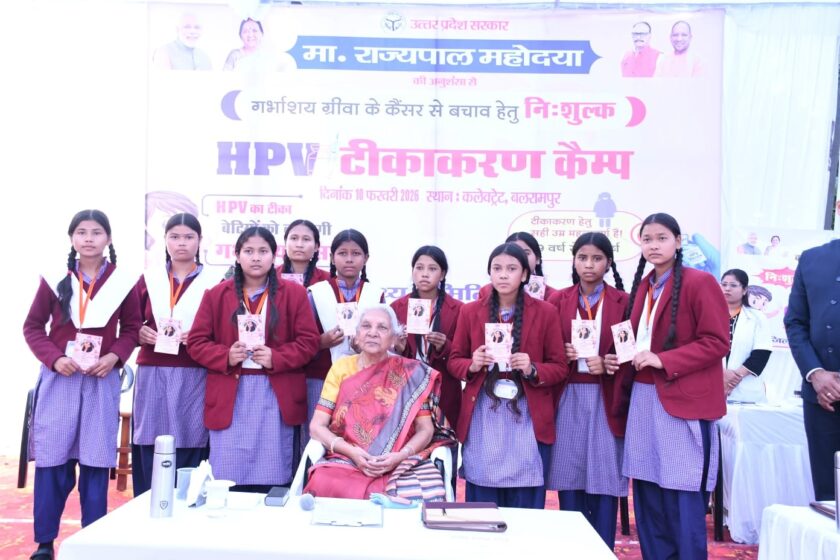 Lucknow: The rainy season brings relief from the scorching heat &a sense of freshness, but it also comes with its own set of challenges, especially regarding food safety. The increased humidity, waterlogging &stagnant rainwater provide the perfect environment for bacteria, viruses, &other pathogens to thrive. Food poisoning is one of the most common illnesses during the rainy season &it affects people of all ages, with children &the elderly being particularly vulnerable. In this article, we will explore the simple yet effective ways to prevent food poisoning during the rainy season, ensuring you &your family stay healthy &safe.
Lucknow: The rainy season brings relief from the scorching heat &a sense of freshness, but it also comes with its own set of challenges, especially regarding food safety. The increased humidity, waterlogging &stagnant rainwater provide the perfect environment for bacteria, viruses, &other pathogens to thrive. Food poisoning is one of the most common illnesses during the rainy season &it affects people of all ages, with children &the elderly being particularly vulnerable. In this article, we will explore the simple yet effective ways to prevent food poisoning during the rainy season, ensuring you &your family stay healthy &safe.
Understanding Food Poisoning &Its Causes in the Rainy Season
Food poisoning refers to an illness caused by consuming contaminated food or drink. The contamination is often due to bacteria, viruses, or parasites present in the food or water. During the rainy season, the risk of food poisoning increases significantly due to several factors, including the following –
- Water Contamination – Rainwater often mixes with sewage or other contaminants, leading to the contamination of drinking water. If this water is consumed, it can lead to foodborne illnesses such as diarrhoea, vomiting, &nausea.
- Increased Bacterial Growth – The warm, humid environment of the rainy season creates ideal conditions for bacteria such as Salmonella, E. coli, &Vibrio cholerae to multiply rapidly in food, especially in perishable items like meat, fish, &dairy products.
- Spoiled Food – The increased humidity &moisture in the air cause food to spoil faster, especially when stored improperly. Spoiled food becomes a breeding ground for harmful microorganisms.
- Street Food &Open Markets – People tend to seek comfort food from roadside vendors or open-air markets, where food hygiene is often questionable. Such foods may be exposed to dust, water, or contamination, increasing the chances of foodborne illnesses.
Simple Ways to Prevent Food Poisoning
While food poisoning can be a serious concern during the rainy season, there are several simple steps you can take to prevent it. These precautions are easy to follow &can go a long way in keeping you &your family safe from foodborne illnesses.
1. Ensure Safe Drinking Water – One of the most common causes of food poisoning during the rainy season is the consumption of contaminated water. Rainwater often mixes with sewage or other pollutants, making it unsafe to drink. To prevent waterborne illnesses, follow these guidelines
- Boil Water – Boiling water kills harmful microorganisms. Always boil water before drinking or using it to prepare food.
- Use a Water Filter – If boiling water is not feasible, use a water filter or a reverse osmosis (RO) purifier to ensure the water is free from contaminants.
- Store Water Properly – Always store drinking water in clean, covered containers. Avoid using open vessels that can allow contaminants to enter the water.
2. Practice Proper Food Hygiene – Maintaining good food hygiene is crucial in preventing food poisoning. During the rainy season, food is more susceptible to contamination, so it’s important to handle &store food carefully.
- Wash Hands Regularly – Wash your hands thoroughly with soap &clean water before handling food, especially after using the bathroom, touching garbage, or coming in contact with animals.
- Clean Fruits &Vegetables – Fruits &vegetables, even those with skins, should be washed thoroughly under running water. You can also use a vinegar-water solution to remove pesticides &bacteria from produce.
- Cook Food Properly – Ensure that food, especially meat, poultry, &seafood, is cooked thoroughly to kill harmful bacteria. Avoid undercooking, as it may leave harmful microorganisms alive.
- Avoid Raw or Undercooked Foods – Avoid eating raw or undercooked meat, seafood &eggs, as these can harbour harmful bacteria that can cause food poisoning.
3. Store Food Correctly – Improper food storage is a leading cause of food poisoning, particularly during the rainy season when food can spoil quickly due to the high humidity. Here are some tips for storing food safely-
- Refrigerate Perishables – Always store perishable items such as dairy, meat, poultry, &fish in the refrigerator. Make sure your refrigerator is set at the correct temperature (below 40°F or 4°C) to prevent bacterial growth.
- Use Airtight Containers – Store leftovers or perishable foods in airtight containers to prevent contamination &spoilage.
- Avoid Leaving Food Out in the Humidity – During the rainy season, the high humidity can cause food to spoil quickly. Do not leave cooked or perishable food out for long periods. If you are using food that has been stored for a while, check it for signs of spoilage before consuming.
4. Be Cautious with Street Food &Open Markets – While street food is a popular choice during the rainy season, it can be a significant risk for food poisoning due to poor hygiene practices. Here are a few things to keep in mind when consuming food from street vendors or open markets
- Check the Vendor’s Hygiene – Choose vendors who maintain good hygiene &prepare food in clean, covered areas. Avoid eating from vendors who are handling food with unwashed hands or who do not store food properly.
- Opt for Freshly Prepared Food – Freshly prepared food is less likely to be contaminated. Avoid food that has been sitting out for a long time, as it may have been exposed to bacteria.
- Avoid Unfiltered Water – If the vendor is offering beverages like fresh juices or water, ensure that it is filtered or boiled. Avoid consuming drinks made with tap water or ice from unreliable sources.
5. Be Mindful of Food Expiry Dates – During the rainy season, the moisture in the air can cause packaged foods to deteriorate faster. Always check the expiry date &condition of the food before consuming it, especially for packaged or canned goods. If a package is swollen, damaged, or has signs of leakage, discard it immediately.
6. Stay Vigilant About Food Quality – The rainy season can cause food to spoil faster, especially if it is not stored properly. To prevent foodborne illnesses, regularly check food for signs of spoilage, such as changes in colour, texture, or odour. If food looks, smells, or tastes off, do not consume it, as it may contain harmful bacteria or toxins.
7. Improve Kitchen Hygiene – A clean kitchen is essential for preventing foodborne illnesses. Make sure your kitchen is spotless, as bacteria &germs can spread quickly in areas where food is prepared &stored. Here are some kitchen hygiene tips-
- Clean Countertops &Utensils – Always clean countertops, cutting boards, knives, &utensils with hot, soapy water after each use, especially when preparing raw meat, poultry, or seafood.
- Sanitize Sponges &Cloths – Kitchen sponges &dishcloths can harbour bacteria. Replace them regularly &sanitize them to ensure they don’t contribute to contamination.
- Dispose of Garbage Properly – Always dispose of food waste &trash in sealed bags &take out the garbage regularly to avoid attracting pests that could contaminate food.
8. Maintain Personal Hygiene – Personal hygiene plays a vital role in preventing food poisoning. Ensure that everyone in your household follows these hygiene practices
- Clean Clothes – Wear clean clothes, especially when handling food. Avoid using the same clothes for cooking &eating.
- Use Clean Utensils – Always use clean &sanitized utensils while preparing &serving food. Never use utensils that have come into contact with raw food, especially raw meat, unless they have been thoroughly cleaned.
- Avoid Direct Contact with Contaminants – Do not touch your face, mouth, or food with unwashed hands. This simple habit can prevent harmful bacteria &viruses from entering your body.
The rainy season brings much-needed relief from the heat, but it also poses certain health risks, especially when it comes to food poisoning. However, by following simple hygiene practices, ensuring safe drinking water, storing food properly, &being cautious with street food, you can significantly reduce the risk of foodborne illnesses during this season. Taking small yet effective steps to prevent contamination can help you &your loved ones stay healthy &safe, ensuring that the rainy season is enjoyable without any health setbacks.

Remember that prevention is always better than cure. Foodborne illnesses can be avoided with the right knowledge &actions, so make sure to follow these guidelines &stay vigilant. By prioritizing food safety, you can prevent the discomfort &risks associated with food poisoning, leading to a healthier &happier rainy season.
Disclaimer – This article is for informational purposes only. In case of any medical issues, please consult a registered medical practitioner, &for nutrition-related queries, consult a qualified nutritionist or dietitian.
Ranu Singh
Community Nutritionist | Founder – Nutrition Punch
National Executive Committee Member – IAPEN India
Chief Program Officer – Community Nutrition Core Group, IAPEN India










